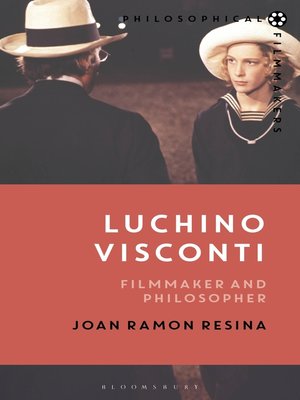
Sign up to save your library
With an OverDrive account, you can save your favorite libraries for at-a-glance information about availability. Find out more about OverDrive accounts.
Find this title in Libby, the library reading app by OverDrive.



Search for a digital library with this title
Title found at these libraries:
| Library Name | Distance |
|---|---|
| Loading... |
Luchino Visconti (1906-1976) was one of Europe's most prestigious filmmakers, who rose to prominence as part of the Italian neo-realist movement, alongside contemporaries Vittorio De Sica and Roberto Rossellini. Famous for his elegant lifestyle, as friend of Jean Renoir and Coco Chanel amongst others, his vibrant technicolour dramas are also known for their decadence and stunning display of aesthetic mastery and sensory pleasure.
Looking beyond this colourful façade, however, Resina explores the philosophical implications of decadence with a particular focus on three films from the late phase in Visconti's production, Damned (1969), Death in Venice (1971), and Ludwig (1972). From the incestuous relationship between decadence and power to decadence as an outcome of straining toward formal perfection, Resina uncovers the unity and philosophical cohesiveness of these films that deal with different subjects and historical periods.
Reading these films and their decadence in light of the time of filming and Visconti's own sense of cultural doom, Resina further demonstrates the relevance of Visconti's philosophy today and how much they still have to say to our contemporary situation.
Looking beyond this colourful façade, however, Resina explores the philosophical implications of decadence with a particular focus on three films from the late phase in Visconti's production, Damned (1969), Death in Venice (1971), and Ludwig (1972). From the incestuous relationship between decadence and power to decadence as an outcome of straining toward formal perfection, Resina uncovers the unity and philosophical cohesiveness of these films that deal with different subjects and historical periods.
Reading these films and their decadence in light of the time of filming and Visconti's own sense of cultural doom, Resina further demonstrates the relevance of Visconti's philosophy today and how much they still have to say to our contemporary situation.







